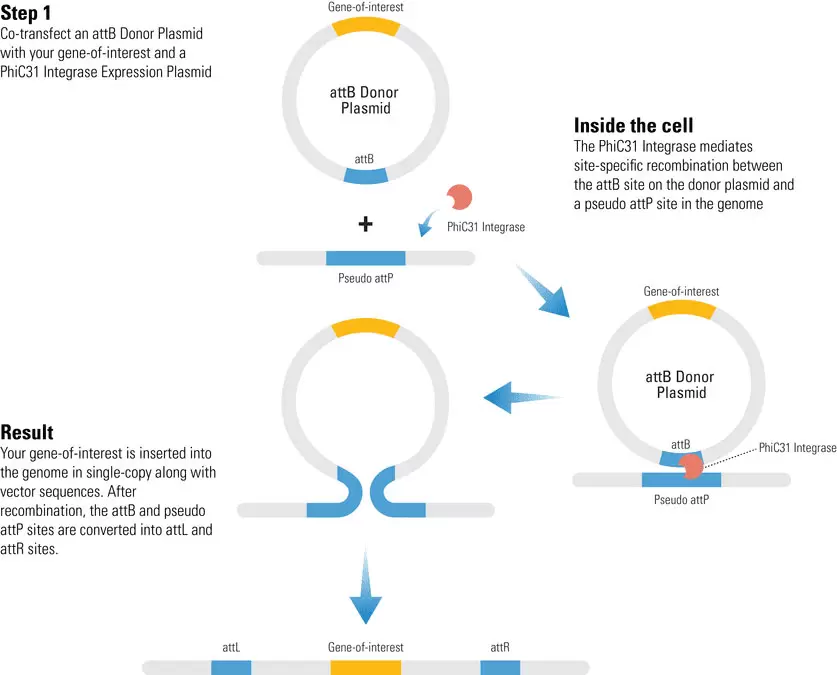
PhiC31 Integrase System
PhiC31 Integrase Vector System
One-step Transgene Delivery with the PhiC31 Integrase System
The PhiC31 Integrase System is an non-viral, integrase-based gene expression system for low- or single-copy integrations up to large insert sizes. The PhiC31 Systems comes in a variety of promoter and reporter combinations. Available are dual-direction promoter donor vectors as well as single promoter and promoterless options.
- Frequently used for gene therapy development and related applications
- Non-viral transgene delivery
- Single-step process
- Single-copy integration
- Preferential integration at active sites
- Delivery of inserts with no size constraints
- Easy generation of cell lines
How it works

With the PhiC31 Integrase System, you simply clone your gene-of-interest into the attB Donor Plasmid, and then (Step 1) co-transfect with a PhiC31 Integrase Expression Plasmid. (Inside the cell) The PhiC31 Integrase is transiently expressed, and mediates site-specific recombination between the attB site on the donor plasmid and a pseudo attP site in the genome. (Result) Because pseudo attP sites are typically present in transcriptionally active sites of the genome, your gene-of-interest will likely be integrated into an active region of the genome.
Donor vector options
Dual-direction promoter donor vectors
pFC-EF1-MCS- PGK-RFP-Puro vector
Single promoter and promoterless vectors
pFC-CMV-MCS-SV40-Kan/Neo phiC31 vector (single promoter)
pFC-CAG-MCS-WPRE-pA-SV40-Neo phiC31 vector (single promoter)
pFC-CMV-GFP-SV40-Kan/Neo phiC31 vector (positive control)
pFC-MCS-SV40-Kan/Neo phiC31 integrase vector (promoterless)
phiC31 based IPSC Generation
The phiC31 Integrase System can also be ulitized as a nonviral technology for transgenesis. With both iPSC-generating donor and PhiC31 Integrase Expression plasmids, the Non-Viral PhiC31 Integrase Mouse iPSC Reprogramming Kit delivers a complete, non-viral integrase-based iPSC generation system. The two plasmids are also available separately.